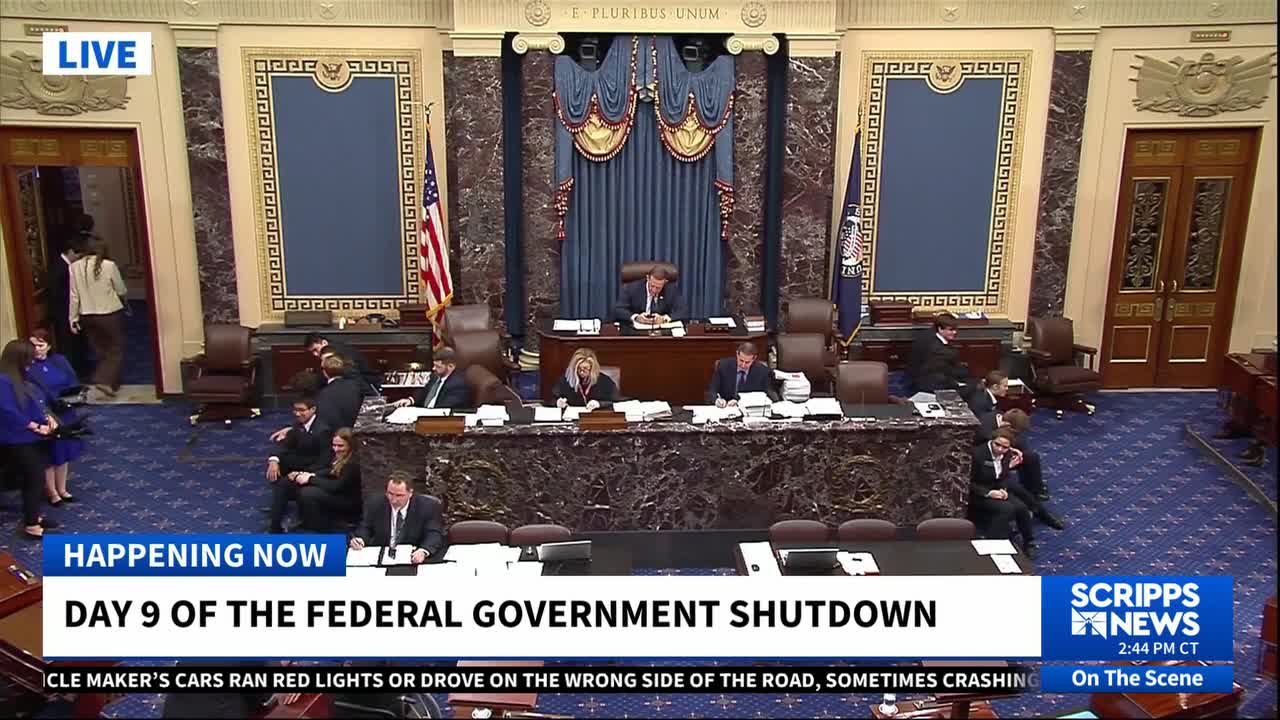WASHINGTON, D.C. — With the government shutdown stretching into day 10, lawmakers are considering measures to ensure service members still receive pay.
The Senate failed has again failed to pass competing Democratic and Republican short-term funding bills that could have reopened the government on Thursday.
If Congress does not take further action, service members will not receive their expected paychecks on Oct. 15. Ensuring that military pay is not disrupted during a government shutdown has recently become the only issue that both congressional Democrats and Republicans agree on.
Democratic House Minority Leader Hakeem Jeffries signaled support for this effort.
And across the aisle, Virginia Rep. Jen Kiggans introduced the Pay Our Troops Act, which has bipartisan co-sponsors.
“We’ll take care of it,” President Donald Trump said when asked about protecting military pay on Wednesday. “Our military is always going to be taken care of.”
However, the House of Representatives will not meet again until next week — House Speaker Mike Johnson's decision to close the lower chamber was done in an attempt to force the Senate to work with the funding bill passed by House Republicans.
Virginia Sen. Tim Kaine argued that this wouldn't be necessary if President Trump allowed Republicans to negotiate with Democrats to end the shutdown.
"We didn't have a shutdown during the Biden administration. We got close to deadlines, but the President would get people in the Oval Office and settle it. So we've got a disengaged president and a speaker who's keeping his people out of town. This doesn't have to be long," Kaine said.
This gridlock has persisted because Democratic lawmakers are seeking concessions from their Republican colleagues on the new funding measure, specifically with regards to extending subsidies for the Affordable Care Act, which were removed by the "Big, Beautiful" bill. Democrats have warned that millions of Americans' health insurance premiums will rise unless these subsidies are approved — Republicans argue that now is not the time to debate health care funding.





